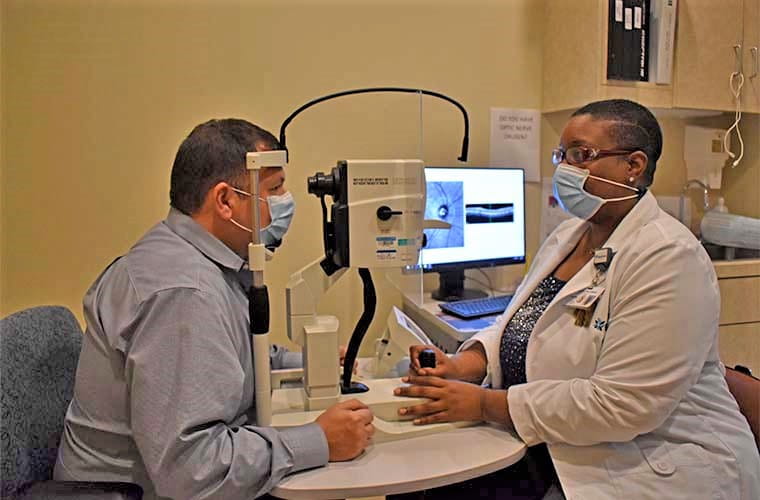BayCare Health System Actively Recruiting Participants for Alzheimer’s Study

BayCare Health System’s Morton Plant and St. Anthony’s hospitals are actively recruiting participants for a clinical trial using a non-invasive retinal screening process that potentially could help clinicians detect Alzheimer’s disease possibly decades before symptoms appear.
Funded primarily by the Morton Plant Mease Health Care Foundation and St. Anthony’s Hospital Foundation, the five-year, $5 million Atlas of Retinal Imaging in Alzheimer’s Study (ARIAS) plans to enroll 330 individuals at three sites – Morton Plant Hospital in Clearwater, St. Anthony’s Hospital in St. Petersburg, and The Memory and Aging Program at Butler Hospital in Providence, R.I.
Candidates for this study should be between 55 and 80 years old. Potential participants range from cognitively normal (no memory concerns) to mild (early) Alzheimer’s disease. First degree relatives of people with Alzheimer’s disease are a key study group in ARIAS because they are naturally at higher risk of developing the disease.
Participants will be examined five times over three years. Each visit will include an eye exam, APOE genetic swab, cognitive assessments and retinal imaging, which is much like what is done during a visit to the eye doctor.
The goal of the study is to develop an inexpensive way to screen people for Alzheimer’s, making it possible to identify who will get the disease long before symptoms emerge. Those individuals become candidates to receive potentially effective medications to stop or alter disease development.
Currently, Alzheimer’s disease is not clinically diagnosed until clinical symptoms become obvious. By this time, too much damage is done to the brain and patients are experiencing loss to their quality of life. ARIAS will try to find ways to detect Alzheimer’s early, before symptoms emerge and there is a decline in the ability to function. If proven effective, the retinal imaging used in the study can be done inexpensively on a visit to the eye doctor.
This study officially launched more than a year ago, but as was the case with many things in 2020, COVID-19 delayed enrollment. “We had hoped to have this study well underway by now, but the pandemic shifted everyone’s priorities,” said Stuart Sinoff, MD, co-principal investigator and retired medical director of Neurosciences for BayCare’s West Region.
Peter Snyder, Ph.D., URI vice president for research and economic development and professor of biomedical and pharmaceutical sciences, joins Dr. Sinoff as a principal investigator. Others working on this study include Stephen Salloway, MD, director of Neurology and the Memory and Aging Program, Butler Hospital; Martin M. Zucker, professor of psychiatry and human behavior, professor of neurology, Alpert Medical School of Brown University, and Jessica Alber, Ph.D., assistant professor of research and cognitive neuroscientist at the University of Rhode Island.
If you live near Tampa, Clearwater or St. Petersburg in Florida, and you are interested in finding out more about the study, please call Catrina Montgomery at 727-298-6077 or email ARIAS@baycare.org.
